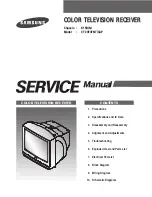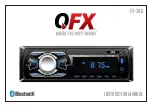
Section 8 – Automation Communication Formats
8–37
8.10.5 Supervisory Record
When the automation computer sends a supervisory character to the receiver, the receiver will answer with
a supervisory record. A supervisory record (heartbeat) is sent periodically to the automation computer. How
often the supervisory record is sent is set through programming (see Section 5.4.3.5 page 5–18).
The following is an example of a supervisory record:
<"|["><"S"><"|IA1"><"|D970514"><"|T145056"><"|V042097"><"|L6.1"><"|]">
<Cksum/Ctrl><$0D>
Table 8–45 lists the information fields contained in a test record and their descriptions.
8.10.6 Log Records
If Log Record (Log Rec) is enabled (see Section 5.4.3.5 page 5–20), a pair of phone log records surrounds all
report records generated by the reporting panel. The unused data field of the log record is filled with six
"NoData" characters (see Section 5.4.3.5 page 5–20).
The following is an example of how a log record surrounds a report record:
<"|["><"L"><"|IA1"><"|L1"><"|Nooo1"><"|S970425080020"><"|]"><Cksum/Ctrl><
$
0D>
Start Log Rec
<Report Record>
Report Rec
<Report Record>
Report Rec
<"|["><"L"><"|IA1"><"|L1"><"|Nooo1"><"|E970425080110"><"|]"><Cksum/Ctrl><
$
0D>
End Log Rec
Table 8–46 lists the information fields contained in a log record and their descriptions.
Table 8–46: Log Record Information Fields and Descriptions
Character Description
Acceptable
Values
I
System identifier. A unit ID (always an A) and
the receiver ID digit. See 5.4.4.2 to set
receiver ID.
"A" followed by 0-9.
L
Line Card number.
See Table 8–38 for accepted values.
N Reference
number.
0001-9999
S
Date and time.
YYMMDDhhmmss format where YY =
Year, MM = Month, DD = Day, hh =
hour, mm = minutes, dd = seconds.
E
Date and time.
YYMMDDhhmmss format where YY =
Year, MM = Month, DD = Day, hh =
hour, mm = minutes, dd = seconds.
8.10.7 Checksum/Control Field
The last field of every record is the checksum/control field. This field contains an upper case letter followed
by four ASCII hexadecimal digits. Contained in these five characters are three controls to help guarantee
data integrity between the receiver and the automation computer.
The first control is the Sequence Control Character (SCC). This is a letter code which cycles from "A" to "Z"
continually, changing successively with each new record transmitted.
Note:
If the receiver has to repeat a record in response to a NACK from the automation computer, the same
SCC is sent both times.
The first digits sent (following the SCC) are the two least significant digits of an additive checksum for the
record from the first "|" character up to and including the SCC. See Table 8–47.
The last two digits in the record are an XOR checksum. The XOR checksum starts with a value FFh. This
value is XORed against the first byte in the record. The result is XORed against the next byte and so on, up
through the SCC. See Table 8–47.
The following is an example of a checksum/control field:
|[X|]A49E0
















































